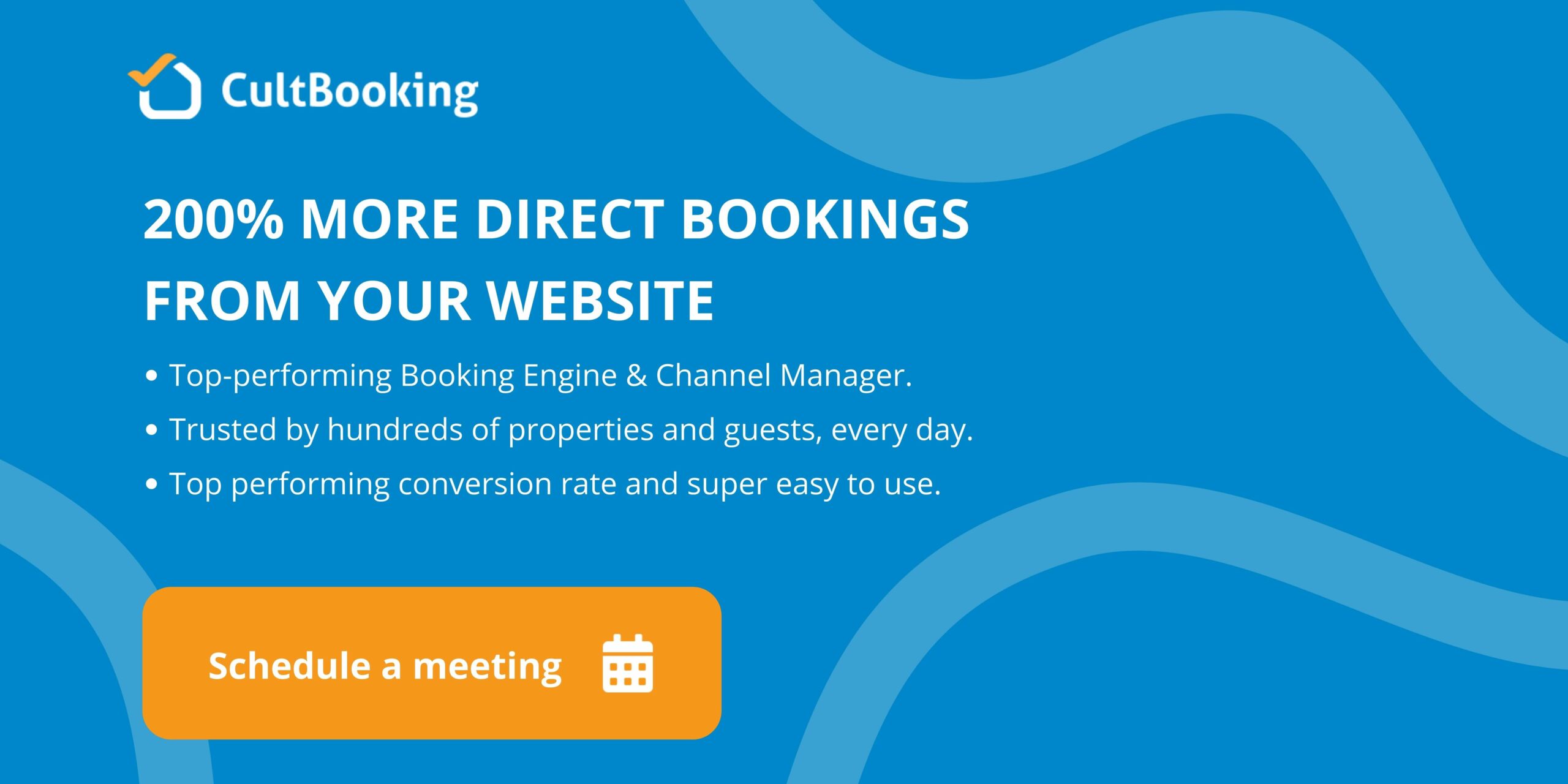How To Use SEO For Hotel Websites
Statistics show that 70% of all global desktop traffic is done through Google. By 2021, Google already had almost 360 billion searches inputted to its search engine, and it’s still counting.
The bare minimum for being active on the Internet in today’s time is to simply create a website or make an account in any social media platform or even perhaps create an email. However, that’s not going to get you anywhere close to being discovered by millions of people every day.
Undoubtedly, the digital world cannot be discounted when it comes to creating a successful business, so much more if said business revolves around the travel industry such as hotels chains. For any successful hotel to get a spotlight in the digital world, it is vital to execute different strategies and adopt new technologies in order to stay relevant.
One of these technologies is Search Engine Optimization or SEO for short.
What is SEO?
SEO refers to anything involving websites trying to squeeze out each improvement they can make to rank better in relevant searches for keywords that they are trying to go for. Websites try to up one another in getting the highest ranking on Google’s search engine. There are plenty of ways to do this, and you can often hear overlapping technical terms with how different companies and websites use SEO to their advantage.
Some companies and websites integrate different blogs to their websites to maximize their capacity to rank higher through the keywords they are also using in their blog. Others try to incorporate great backlinks from other reputable sites so that they can have a higher edge on their market; some just create quality content that their readers will be interested in, and others simply just find keywords and phrases that people haven’t yet ranked for and hope for the best that people start searching for them.
These are some of the strategies that you might encounter when it comes to the world of SEO. After all, everyone is trying to “optimize” everything to get that sweet top rank.
SEO, in a nutshell, is basically just you puffing your chest out for all to see. However, you don’t really have any muscles nor even a chest to puff out. Instead, you showcase everything by the value of content that you have and the optimizations and improvements that you apply.
The importance of SEO for hotels
Hotels have been particularly hit hard by the recent pandemic as lockdowns, quarantines, and travel bans have put the entire travel industry at a standstill. Hotels have been feeling the brunt of the impact that the pandemic has brought.
However, as these restrictions start to subside all across the globe and travel recovery is ramping up due to vaccination efforts, it’s time for most hotel chains and businesses to start getting back into the fight and utilize strategies to effectively recover and gain the upper hand in the post-pandemic world and having a great SEO strategy is definitely one of those tactics that businesses can use.
Even before, research has stated that almost 92% of people click at one link on the first page of any Google search result. That’s a lot of traffic potential that you are exposed to and being in the hospitality industry can mean getting a lot of clients at your doorstep.
Competition is tough in this field as other hotels are also competing for the top spot, and one single client might get multiple search results for any travel-related keyword or phrase that they try to come up with.
This is why it is crucial to have an effective SEO strategy; when you mix the different statistics together, they all come up with one single proof – Google gives you unlimited exposure.
It’s not only that, but SEO is also one of the cheaper alternatives in marketing. It’s also one of the areas that remain least affected by the pandemic as websites don’t generally tend to lose exposure as compared to billboards, flyers, and tv advertisements that most people won’t see during lockdowns.
So, with that said, how can you utilize SEO effectively for your hotel business?
Step 1 – Get started with your target market
The first step before going forward with anything SEO-related is to focus on what your target market is. That’s it; there’s nothing you can do without knowing the market that you are searching for. This goes both ways as you also want to filter traffic that doesn’t have to do with the services that you offer, and while traffic can be significant for your website, sometimes it can be more of a nuisance than a benefit.
Try to make your website as specific as possible to the services that you offer. If your hotel is only located at a particular location, then it’s best to market yourself to the audience for that specific location only. Don’t waste time finding clients that aren’t interested in your services in the first place.
Let’s take this paddleboard selling business as an example.

Their website is solely focusing on selling paddleboards and all accessories that are related to their main product. That is a good target marketing strategy.
It is best that you also implement the same with how your website works. In the hospitality industry, hotels tend to focus on location, and that is where most likely your target will be.
Suppose you have multiple hotel chains covering the same brand. In that case, it can even be better to create different websites that solely focus on these separate locations to specify each hotel’s target markets further.
These tactics help you close in on specific target audiences that you can turn into clients while diverting those that don’t apply to your services to neighboring hotels or even similar sister branch hotels. That way, you don’t get to have inquiries from clients from different areas, and you also don’t leech off the target audience of other hotels simultaneously.
Step 2 – Learn which keywords matter

Keywords and keyphrases are the bread and butter of SEO. It’s what people use to search for what they need; in this case, they use these words and phrases to try and find you or your competitors. This is why keyword competition can often be challenging.
Here are some keyword and keyphrase examples for you to see:
- Best hotels in (Location)
- Affordable hotels in (Location)
- Hotels in (Location)
- Hotels near (Location)
- Cheap hotels near me
- Booking hotels in (Location)
- Overnight hotel in (Location)
You can see how many of these keywords require a specific area to be completed. So with that in mind, locations can also double as an essential specifier for your keyword strategy.
Take this site that talks about cart abandonment emails. It’s a lengthy keyphrase, but most people use it to search for that target niche. Not only focus on words but also the specific phrases that people might use to search for you.
Mixing both of these to your strategies will help you cover both competing for keywords and being the first to rank for specific keyphrases that others haven’t yet tried.
You can first try finding keywords on different sites such as Ahrefs, Ubersuggest, Moz, or even just from Google.
Step 3 – Craft actionable quality content
Now that you have managed to get the keywords and phrases that matter, it’s time to implement these on your site. This is probably the most crucial part of the entire step journey, as there is still one truth that holds on even after all the tricks and optimizations that websites can do.
Content is still and always be King.
That is the one truth that will continue to hold on with how SEO works, and it’s probably the easiest to start but most challenging to get right.
Sure, it’s one piece of the puzzle, but it’s probably the most prominent piece that will establish the foundations of what your entire SEO strategy depends on. Quality written content will not only give you natural traffic but also engage readers to get something new from what you’ve written.
They will be able to learn something new, and just that in itself is a big win in terms of making a reputation for your site. Putting out actionable quality content will also give you an easier time with link building as numerous different sites would always want to link back to websites that they believe will be helpful for the readers that they have.
Some easy-to-see actionable content out there is research papers, surveys, polls, listicles, and even “Top 10” blogs. The reason for this is that either you start creating and researching new content to publish or summarize this new content from other sites to suit your needs.
Step 4 – Streamline content structure

Streamlining content structure is essential. It’s good to have a basic layout of your entire website; this rings especially true for blogs.
Consistency and accuracy are two important factors that are crucial when writing content. The layout needs to be the same and familiar for readers to have an easier time navigating through each set of blogs that you will be putting out.
Take, for example, this supplement shop and its blog.
They have a streamlined content structure, as you may note that their blogs have all the same format, layout, topics, etc. That is one great way to engage readers and keep people reading your blogs, as familiarity and consistency are all great perks to have when it comes to keeping your own blogs.
Step 5 – Maximize your use of images.
Images can be a big help to your SEO strategies. It provides a generally better experience for overall user experience, especially for hotel websites where visualization is almost used at each part of a page.
Statistics show that almost 94% of blogs that have images receive more views than blogs that are text-only. That is an overwhelming number of views that you can achieve just by simply adding in great related pictures.
It doesn’t have to be yours, there are plenty of stock photos, vectors, and other materials to go through for you to have an appealing visual image of what your topic talks about. If you don’t think the picture looks fine, consider adding in some aesthetic lightroom presets.
Visualization is an essential aspect of any successful website, and it’s best to integrate visuals into your blogs. Not only that, but you can even maximize the use of images to help with your SEO strategies.
Maximize the effectiveness of images by placing in an “alt-text” to them.
Now, you might ask, “what’s an alt-text”? It’s basically a replacement text in case the image fails to load. It describes the image and what it means to the reader if it somehow fails to load due to a crash or because of a poor internet connection.
You can even integrate keywords in your alt-text, but don’t cram it all in one spot.
Step 6 – Formulate link-building strategies.
Link building is another fundamental step in SEO. It is how search engines such as Google can easily find and discover new web pages that are being created out there daily. It is also one of the indicators as to how high a page ranks in the SERPs (Search Engine Results Page).
This step rings well with crafting actionable quality content. If you are making great content, then you will easily notice that you are earning links from other sites. This is most probably because other sites have seen the value that your content provides, and they have decided that it would also benefit them to link you to theirs.
This type of link building is a natural way, and it is both an advantage and a sign that you are doing well with the content that you provide.
You might notice in some websites that they somehow have links to other sites that they might not be entirely related to. Let’s say these two sites: Inflow, an inventory management tool, and Orizaba Original, an online Baja hoodie shop.

You might wonder how these two sites can manage to link to each other; well, it’s relatively easy. In a situation like this, most likely, the hoodie shop is using Inflow as their product management system for their business, and they both will try to link to each other as a means of simply getting excellent links!
This is one strategy that businesses use; they tend to partner up with one another in order to help each other get to the top spots of their individual target markets. Another great thing here is that they both aren’t even competing against each other, so it’s just a natural big win for both parties involved.
When it comes to link building, there are plenty of strategies involved in how companies try to scale up their sites. For hotel websites, you can try to reach out to your local partners such as shops, malls, tourist sites, and even some souvenir shops to help get quality backlinks for your site.
Step 7 – Improve website speed

Website speed is as important as anything else. Without it, your site doesn’t load; the visitor gets frustrated with the long loading times and just goes for another link they have opened. Nobody wants that.
You might already be familiar with the importance of website speed. For hotel websites, it’s clear that website speed is essential as user experience is paramount to get them for a booking. The same goes for SEO.
It was way back in 2010 that Google announced that page speed would be a factor in how pages rank for SERP’s and it wasn’t long ago in 2017 that Google also doubled down on that and gave page speed even more consideration, introducing mobile site speed as a critical factor in page speed.
This gives more importance for the user experience to be improved. SEO isn’t all about keywords, content, and links. It’s also about a better experience for the readers and the visitors.
There are plenty of ways to improve site speed; the first thing that comes to mind is sites that have plenty of images and videos. While visualization is essential, it’s also equally significant to make these visuals as optimized as possible. Introducing lightweight formats and distributing them quickly through a content delivery network.
Javascript can also be a critical factor in site speed as having too many scripts, or unoptimized scripts can heavily affect page speed. Double-check other scripts that might have been rendered useless due to changes and updates on how your pages work.
It’s best to always check thoroughly on the heavy-hitting factors. Images and scripts are two great ways to start off in improving page speed both for desktop and mobile-based sites.
Step 8 – Analyze SEO performance.
Now that you have managed to do all these steps, it’s vital to ensure that you are going in the right direction with the efforts you’ve pooled. Analyzing your SEO performance is as crucial as making improvements. If you don’t know where you are now, you might as well be shooting blind with the changes you make.
Analyzing your SEO performance gives you more information as to what works and what doesn’t. If you need better backlinks, compete for other keywords, or improve page speed.
There are plenty of SEO performance metrics out there, and they also double as tools for page optimization, so it’s also a no-brainer to try and get these tools for yourself. You might be familiar with some of them already, such as Ahrefs, Moz, Google Analytics, and many more.
You can even go so far as to pair your SEO performance with other content research tools to know your audience better and how they interact with you.
SEO is also about numbers, metrics, and analytics. There is quite a lot of math involved, but it’s the only way to know that you are going in the direction you want. If you want to top the competition in search engine results, then you’re going to need to get all mathematical.
Conclusion
SEO is undoubtedly an essential aspect in many industries, and that includes the hospitality industry. Integrating SEO into hotel websites as a marketing strategy is one of the cheapest and most effective ways to get more web exposure. However, while it is indeed hard because of the competition, analytics, and content involved, it is all worth the effort spent at the end of the day.
CultBooking – Best Booking Engine is here to help you with SEO and better ranking on Google. Moreover, now is possible for you to use the google free links and also the Adwords. Feel free to book a meeting and learn more how CultBooking will bring you more direct bookings:
Author Bio
Burkhard Berger is the founder of Novum™. You can follow him on his journey from 0 to 100,000 monthly visitors on novumhq.com. His articles include some of the best growth hacking strategies and digital scaling tactics that he has learned from his own successes and failures.


 info@cultbooking.com
info@cultbooking.com  0049 30 726225 0
0049 30 726225 0 